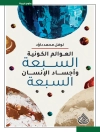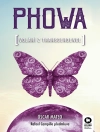In ‘The Life of the Spirit and the Life of To-day, ‘ Evelyn Underhill brilliantly weaves a tapestry of spiritual insight and practical application, exploring the interplay between mystical life and contemporary existence. Written in a lyrical prose that reflects her deep theological understanding, Underhill’s work situates spirituality within the context of early 20th-century modernism, offering a critique of both secularism and the rigid dogmas of religious institutions. This text invites readers to nourish their spiritual lives amidst the distractions and challenges of modern society, emphasizing the necessity of a lived spirituality that resonates with daily experience. Evelyn Underhill, a prominent theologian and spiritual writer, was profoundly influenced by the burgeoning interest in mysticism and the complexities of the human soul. With her rich background in philosophy and theology, Underhill spent years immersing herself in the writings of mystics and the practice of prayer, which lent authenticity to her exploration of spiritual matters. Her own journey, marked by a quest for deeper understanding, informed her approach to spirituality as both a personal and collective journey. This book is highly recommended for anyone seeking to reconcile their spiritual aspirations with the realities of modern life. Underhill’s compelling arguments and poetic style are sure to inspire readers to embark on their own spiritual quests, making ‘The Life of the Spirit and the Life of To-day’ an essential read for both the spiritually curious and the devout.
关于作者
Eileen Evelyn Underhill, born on December 6, 1875, in Wolverhampton, England, holds a distinguished position in the twentieth-century Christian mysticism and spiritual practice literature. Underhill’s work was characterized by a profound exploration of mystical and spiritual topics, approached with intellectual rigor and accessibility, which allowed her to reach both scholarly and lay audiences. ‘The Life of the Spirit and the Life of To-day’ (1922), one of her seminal works, integrates psychological insights and spiritual philosophies, offering a comprehensive guide to understanding the spiritual life in the context of everyday existence. Underhill’s literary style, often reflective and rich with illustrative analogies, outlines a path towards harmonizing the inner spiritual quest with outward daily routines, thus broadcasting a clear message: spirituality is not confined to secluded asceticism; it is interwoven with our common life. Throughout her prolific career, she authored over thirty books, including ‘Mysticism: A Study in the Nature and Development of Spiritual Consciousness’ (1911), which remains a defining work in the field of mysticism studies. Underhill’s approach, scholarly yet relatable, brought an appreciation for mystic spirituality back to the Anglican Church and made significant contributions to the study of spirituality across denominations. She passed away on June 15, 1941, but left an enduring legacy as one of the most influential lay theologians of her time.












